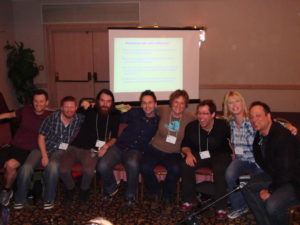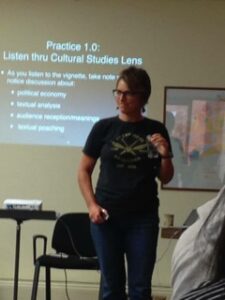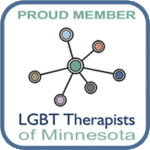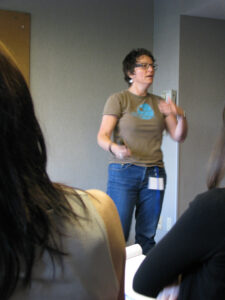Services-old
Creating spacious conversations…
Whether you are seeking therapy, need clinical supervision or consultation, or want the most cutting-edge training available for your staff, Julie Tilsen will work alongside you every step of the way to achieve your desired outcomes.
Therapy
Julie sees youth and adults in therapy for most problems that make trouble in peoples’ lives. For Julie, it’s not so much about what problems people are up against, but how she works in partnership with people to take a stand against problems. One of Julie’s tenets is that therapy is always identity work. Problems get us convinced that we are a certain kind of person (for example, a “bad dad,” a “depressed and anxious person,” a “violent and angry man” or a “hyperactive kid”). Therapy is a project in constructing and living new and preferred identities.
Julie works with individuals, relationships, and families. However you construct and define your important relationships is what matters and Julie welcomes the people that matter to you to be involved in your work with her.
Julie believes that therapy should:
- Focus on what clients want to work on
- Be outcome-oriented**—therapy should be beneficial and produce the change that you want. It’s Julie’s job to help you get on with your life and to deliver the outcomes you want effectively & efficiently
- Feel culturally responsive & respectful, mutually engaging, interesting, and meaningful
- Provide a conversational place where clients’ can bring all of themselves safely
- Generate hopefulness and possibility
** Julie utilizes the only consumer-driven outcome management system in the world available for therapists. Simply stated, Julie is committed to privileging clients’ voices and preferences and seeing that they achieve the change they desire. She deliberately and systematically engages in soliciting client feedback to ensure that the work is beneficial and to the clients’ liking, rather than adhering to a particular method of therapy when change is not occurring. It is an accountability practice that brings to life Julie’s mantra: Maintain fidelity to your clients, not your theories.
Clinical Supervision and Consultation

Julie facilitating panel discussion on gender at TC9 conference in Vancouver.
Julie is a Minnesota Board of Behavioral Health Therapy Approved Supervisor. She is available to supervise people on the LPC and LPCC licensure tracks. Supervision is an engaged, interactive process that is mutually negotiated between Julie and the supervisee. Julie is committed to making supervision financially accessible and personally supportive. Having Julie as a clinical supervisor may be one of the most defining experiences of your professional development.
Therapists, youthworkers, and other helpers interested in furthering their skills in narrative, anti-oppressive, feedback-informed, and constructionist practices will definitely benefit from Julie’s consultation. Julie provides consultation to individuals, small groups, and agencies.
Training
Julie is recognized as a world-class trainer.
Participants in Julie’s workshops have described Julie’s training and style in these ways:
- “Accessible”
- “Brilliant”
- “Fun & provocative”
- “Down to earth”
- “Mind-blowing”
- “Engaging”
- “Keeps it real”
- “Best teacher”
- “Never get enough”
Julie provides custom-made training for your staff on a variety of topics.
Here are a few examples of some of Julie’s workshops, all of which integrate theory and practice, feature hands-on experiential activities, and are cleverly crafted together by Julie through the use of intentional liberatory pedagogical practices:
Feedback Informed Treatment (FIT)
This is an interactive, practice-based workshop that focuses on the use of the Outcome Rating Scale and Session Rating Scale within the context of a practice that is client-driven (rather than model-driven), socially just, and accountable. Social service workers, psychotherapists, substance abuse counselors, and others who work relationally with people will benefit from this workshop. Small group discussion, practice activities, review of outcome literature and research will be enhanced by viewing video of therapy sessions in which the measures are used to inform practice and center clients’ voices in the work. This is for people who want to focus on what works in therapy.
iYouth: Kids, Counseling & Pop Culture
Through the lens of cultural studies methodologies, Julie will take an alternative look at pop culture’s influence on youth. By making space for young clients to talk about their relationship with pop culture, Julie will demonstrate conversational practices that afford youth opportunities to engage in meaningful and critical ways with pop culture . The presentation will take a both/and look at pop culture, viewing it as a potential site for productive meaning making and identity development as well as a source of negative influence and reinforcement of limiting identity conclusions and consumer consumption. Therapists will learn to use conceptual and conversational resources from cultural studies that legitimate their engagement with media texts and honor young peoples’ ways of making meaning in the world.
Therapeutic Conversations with Queer Youth
In this engaging and lively workshop Julie will focus on cultivating relationally and culturally responsive practices that bring forward and honor queer young people’s preferred identities. Linking conceptual resources with the craft of question-asking, Julie will help you put queer theory into therapeutic action. Narrative therapy and queer theory will be featured as praxis allies that invite you and your clients into a reflexive and generative relationship with ideas that instigate hopeful resistance to prevailing cultural discourses.
Beyond ‘Diversity’: Positioning Yourself for a Socially Just Practice
Julie goes beyond the notion of “celebrating” or “embracing” diversity and delves into an examination of the ubiquitous issues of power and privilege that serve as the under girding of systems of oppression and marginalization. Participants will explore issues of racism, classism, hetoronormativy, homonormativity, ageism, ableism, sexism, and intersectionality. The format is interactive and experiential, encourages reflexivity, and includes practical strategies for clinical work.
Families in Transition: Transgender Youth in Context
This experiential, practice-based workshop will examine the cultural contexts that influence transgender youth, the important people in their lives, and the therapists that seek to help them. Participants will be introduced to practices informed by queer theory that honor a proliferation of identity conclusions, respect the need for therapy separate from evaluation, and that challenge conventional ideas and practices about working with transgender youth and families.
Fire Up! Battle “Burnout” by Rekindling the Flame: Re-claiming Your Mission
A well-received and very happy-making workshop for therapists, educators, and social service providers, Fire Up! invites participants to re-claim, re-discover, and re-member why they are in the field they chose, what they bring to it, when they are at their best, what others most value about them, and what it is that can keep them going—individually and as a team. This is a generative process that privileges the stories and knowledge of the participants. In this interactive, experiential, and hope-full workshop, participants will tell and hear stories that reconnect them back to their passion and purpose while also clearing a way to the future.
Staying Connected & Constructing Possibilities: How to not be the Man with Youth
Julie will facilitate an interactive and practice-based workshop that introduces participants to ideas and practices that encourage generative, culturally resonant, and responsive conversations between youth and the adults that work alongside them. Drawing on ideas from constructionist philosophy, post-structural and queer theories, cultural studies methodologies, anti-oppressive practices, and liberatory education, she will provide opportunities to try on practices that position helpers as conversational partners with young people.
Contact Julie

Teaching at Dulwich Centre in Adelaide, South Australia.

